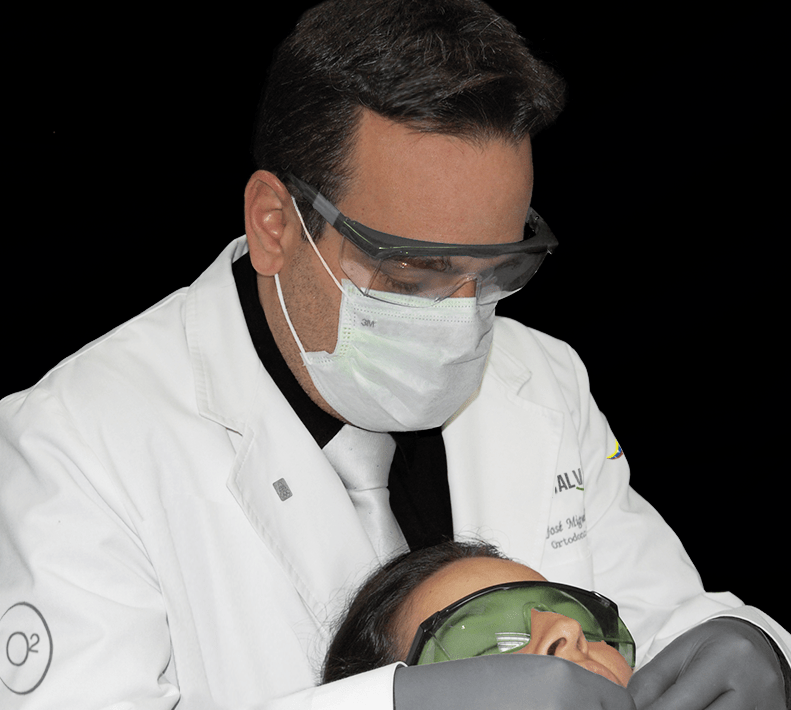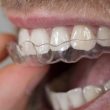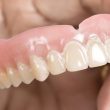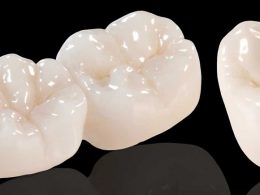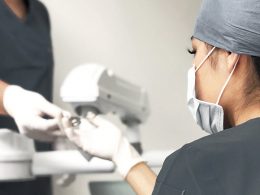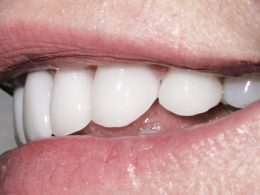Table of Contents
The vast majority of oral rehabilitation treatments require the replacement of missing or absent teeth due to cavities, trauma or periodontal diseases.
Without a doubt, dental implants represent the most modern way to replace missing teeth. We can use implants to replace one, several or all of the teeth in the mouth. In turn, the implants can support a single crown, a fixed bridge, or even; a complete denture.
The main advantage of using implants instead of conventional restorations, is that there is no need to involve healthy teeth in the rehabilitation. Even if neighboring or adjacent teeth require crowns for other reasons, implants offer us the possibility of making restorations that are totally independent and self-sufficient from each other. Thus, if one pillar fails, it does not affect the others or the prosthesis in general, as is often the case with conventional fixed bridges and removable dentures; that when a pillar is lost, they must be discarded and done again.
With dental implants, each spare or replaced tooth can function in an independent way.
Are You a Good Candidate for Dental Implants?
If your general state of health is acceptable (without major surgical contraindications), you aspire to an oral rehabilitation with fixed teeth and you have sufficient financial means; you are probably an ideal candidate for osseointegrated dental implants.
This surgical procedure involves inserting titanium cylinders into your jawbone to replace the roots of your missing or congenitally absent natural teeth. Then, over these “artificial roots”, it is possible to fix implant-supported crowns, bridges or complete dentures.
With the correct care, proper maintenance and regular visits to the Dentist, it is possible to make dental implants work for a lifetime, or at least, for many many years. They are usually the best alternative for those patients who are tired or obstinate to use removable dentures (partial and total) that move when talking and chewing, and that considerably decrease the quality of life.
What Can We Do with Implants?
Almost everything, when it comes to oral rehabilitation. However, one of the most important things in this type of treatments, is the intervention of a highly trained multidisciplinary professional team, with a lot of experience and attunement.
Usually, the Prosthodontic Specialist is the one who plans the case (determines the number and position of the required implants), discusses it with the Oral Surgeon to corroborate or modify his therapeutic aspirations, and once both agree; the latter begins the first phase or surgical phase of the treatment.
Regarding clinical situations or objectives, we must basically distinguish between two variants:
Replacement of One or Few Teeth
A single implant and crown are the best option to replace a lost tooth. This procedure generally takes about 25 minutes for implant placement, even when the tooth is extracted in the same surgical act (immediate implant). Later, once the implant has osseointegrated (properly attached to the bone), a porcelain crown (artificial tooth) is cemented or screwed in; usually 4 to 5 months after surgery.
The same thing usually happens when we need to replace several missing teeth at the same time. If the absences are distant (distributed in several areas of the arch) implants are placed and then crowns in each of them. If on the contrary the absences are contiguous, adjacent or close; implant-supported fixed bridges could be made, which many times allow to reduce the number of necessary implants and the final costs of the treatment.
Replacement of All Teeth
A complete rehabilitation over dental implants allows us to replace all the teeth of a dental arch, even both at the same time (upper and lower).
To do this, we basically have 3 options. Plan a complete restoration with crowns or ceramic frameworks, consider a hybrid prosthesis or limit ourselves to an overdenture.
The complete rehabilitation with porcelain is the A1 alternative for the total absence of teeth. 10 or 12 ceramic crowns on as many implants as possible (8 to 12). The crowns can be individual, can be fused in sections or form part of a single structure. This type of prosthesis is the most similar to natural dentition and when biting it provides an unmatched feeling of security and comfort, however, it requires a great economic investment and almost intact maxillary bone bases.
A hybrid prosthesis is one that combines several materials. It is a single fixed structure that screws onto 4, 6 or 8 implants and generally replaces all the teeth in an arch. It can be made of metal-porcelain or metal-acrylic, and in cases of maxillary atrophy or severe bone resorption, it incorporates pink artificial gingiva to re-establish the vertical occlusal dimension, lip support, dental aesthetics and facial fullness of the person.
An overdenture is a total removable acrylic resin prosthesis that is anchored on 2, 3 or 4 implants. It is known as a “socket denture” because it relies on a male and female system for insertion and removal. The fact that it can be removed by the patient considerably facilitates the oral hygiene process, and although it is removable, the implants provide it great retention and stability compared to a conventional or muco-supported prosthesis.
Five Reasons Why Dental Implants Are So Quoted
Dental implants are the only restorative option that replaces the missing tooth root, which means they can last a lifetime. There are other reasons why dental implants are so popular over other oral rehabilitation treatments.
Here we list five additional reasons why dental implants are our treatment of choice for tooth loss:
1- They Do Not Damage Other Teeth
As they are independent and self-sufficient systems, dental implants do not damage the other teeth of the patient. On the contrary, to make a conventional fixed bridge, it is necessary to invade and grind (preparation of tooth stumps) the neighboring teeth to those that are missing. In quotation marks, damage 2 healthy teeth to replace other missing ones.
Removable dentures are even worse, since to be retained, they transmit horizontal forces (the most damaging) on all natural teeth, and also gradually destroy the supporting periodontal bone, which in the long run, leads to loosening and loss of other natural teeth.
2- Provide a Very Aesthetic and Natural Appearance
Dental implants are precisely designed to look, feel and function like your natural teeth. In addition, they are able to give you the confidence to smile, eat, chew and participate in social activities without feeling self-conscious about your appearance or fear that your prosthesis will come off.
3- They Are Very Reliable and Long-Lasting
Dental implant success rates vary, but in general, high-end dental implants have a success rate of up to 98%. With proper care and maintenance, dental implants can last a lifetime, or at least, an average of 20 years.
Unlike fixed bridges and removable dentures, implants can last a lifetime without needing to be replaced every five, ten, or fifteen years. This makes dental implants a cheaper option in the long run.
4- They Allow to Eat, Chew and Speak Normally
Replacing missing teeth with dental implants will allow you to chew food better and speak more clearly. The implants are anchored in the jawbone, just like natural teeth. They also help preserve alveolar bone tissue and prevent bone loss in neighboring teeth.
5- Preserve Facial Fullness
Dental implants not only protect the other natural teeth of the patient, but also preserve his jawbone.
Dental implants, being functionally active elements, transmit forces to the supporting alveolar bone that balance its bone remodeling processes (apposition and resorption) and prevent its atrophy due to disuse; something typical, characteristic and unavoidable with removable dentures.
By preserving the height and thickness of the jaws, the appearance of the face is better preserved, its vertical dimension is maintained, and fewer folds and wrinkles are formed on the skin.
“Without Any Discussion, and for a Long Time, Dental Implants Represent the Best Option to Replace Teeth Lost Due to Caries, Trauma or Periodontal Disease”.
DENTAL TIP
Let Us Compare Implants with Other Prosthetic Alternatives…
Without a doubt, dental implants represent the rehabilitative alternative that is closest to the ideal prosthetic prototype. Compared to other types of dental prosthesis, implants offer many advantages. Let us see why:
- Conventional Fixed Bridges They are the most common alternative to dental implants in cases of localized or non-excessive tooth loss. This type of prosthesis involves grinding pillars, in other words, intentionally damaging healthy adjacent teeth to support and fix the bridge. These prostheses generally fail after 10-15 years because they cause great difficulty for the average patient to floss, leading to the appearance and development of root cavities and periodontal diseases.
- Removable Partial Dentures Although they do not require great wear on natural teeth, they are not as stable and comfortable as the different alternatives offered by the fixed prosthesis. In addition, they tend to affect speech and eating. Although this type of prosthetic restoration is the least expensive of all, its aesthetic appearance leaves much to be desired, since it generally exposes metal and plastic parts during speech and smiling. Another great disadvantage in relation to dental implants, is that they deteriorate the natural teeth and the jawbone of the patient.
- Adhesive Bridges Also called Maryland bridges, they are a valid option to replace anterior (front) teeth that support low occlusal load (bite force). They have fins on each side to adhere to healthy adjacent teeth, so it is not necessary to wear natural teeth. It is a bridge that is bonded with composite, and that looks and works much better than a removable denture. However, it is not very resistant and offers little retention, so its longevity is quite limited, compared to conventional fixed prostheses and dental implants.
- Muco-Supported Total Dentures In our understanding, they represent the “worst is nothing” of current Dentistry. They are extraordinarily bulky, move when eating and talking (they have practically no where to support themselves), make chewing difficult, limit the person’s diet, prevent correct diction; and to top it all, they rapidly reabsorb the maxillary bone. They should always be the last option to consider, limiting their use to cases of surgical contraindication for the placement of dental implants or economic factors.
Due to all these circumstances, it is not difficult to deduce that dental implants provide exceptional long-term value and can be an excellent investment for your future oral and overall health.
They represent a first-rate option, with a prominent success rate, for replacing and throwing away the uncomfortable removable dentures.
Undoubtedly, there is still no other option that is better than dental implants, generally speaking, to replace the teeth that have been lost and restore the function, aesthetics and facial fullness of the person.
Dental implants are synonymous with guarantee and quality of life!
Making Dentistry Care Simple and Affordable!
DENTAL VIP is one of the most modern and recognized private dental clinics in Venezuela, and it could be your trustworthy partner in dental treatment abroad offering you: over 12 years of experience in dental tourism, excellent Dentists, high quality treatment covered by guarantee, comprehensive care, supportive and helpful staff, affordable prices and comfortable stay at our recommended hotels in Caracas.
All Dentists working at DENTAL VIP have a long experience in Dentistry and are highly qualified. Our Dentists, apart from having fourth level studies, regularly take part in domestic and foreign trainings, conferences and seminars.
The quality is guaranteed, and the price too! Do not waste any more time, contact us today and save up to 70% on extensive or highly complex dental treatments.
